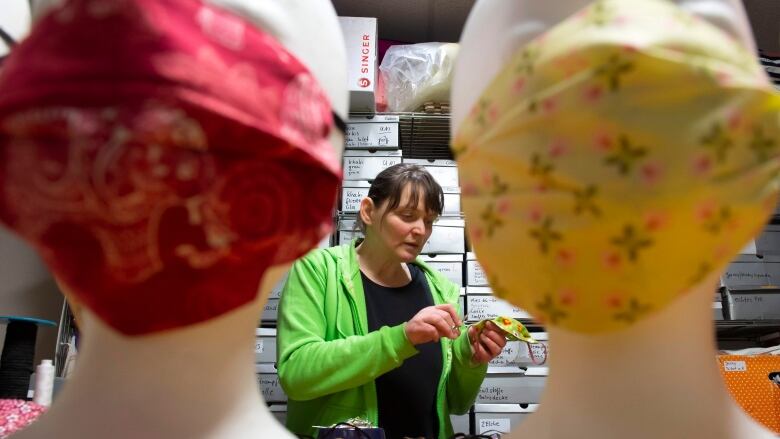Sask. Health Authority won't take homemade donations, but will take sealed supplies
SHA can accept things like unopened and sealed boxes of non-latex gloves

The Saskatchewan Health Authority (SHA) says itis not accepting donations of homemade masks, gownsor other personal protective equipment.
SHA saiditwill accept things like unopened and sealed boxes of non-latex gloves, disposable gowns and masks, but are asking that people not deliver them directly to their facilities.
SHAwill be accepting donations from suppliers, industry associations, companies and organization drives.
If you have supplies to donate you can email procurement@gov.sk.ca.
They also do notwant anyone dropping off food or beverage donations for health-care workers to share.
SHA said it appreciates the support, but they follow guidelines set out by the chief medical health officer.
Supplies running low
Jennifer Privestarted to turn to homemade equipment as personal protective equipment supplies start to run low.
Prive, who works out of Regina as a continuing care assistant, said masks are harder to come by every day.
"[Cloth masks], at the end of the day, we can wash them and sterilize them to be able to use them over again when we go to our clients the next day," she said.
Privesaid she wants to ensure that frontline workers can be kept as safe as possible throughout the crisis.
Do cloth masks work?
The effectiveness of cloth masks hasn't been studied much and would depend on the type of fabric, saidDr. Michael Gardam, an infectious disease specialist and chief of staff for Humber River Hospital in Toronto.
"They do tend to be quite porous," he added.
Which masks should healthcare professionals be wearing? It varies, according to Dr. Mark Loeb, a professor of pathology and clinical epidemiology at McMaster University in Hamilton.
For example, the U.S. national Centersfor Disease Control and Prevention recommends the use of N95 masks, but the Public Health Agency of Canada recommends a medical mask. Ontario previously recommended N95 and is now recommending medical masks.
However, Loeb saidN95masksare definitely needed for special medical procedures that generate aerosols, likeinserting a breathing tube or bronchoscopy (imaging someone's lungs and air passages).
More questions about masks? Read CBC Health's in-depth article on them here.
With files from Laura Sciarpelletti and Emily Chung












_(720p).jpg)


 OFFICIAL HD MUSIC VIDEO.jpg)
.jpg)



























































































